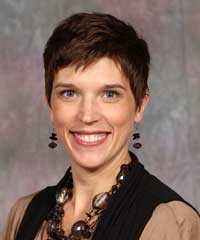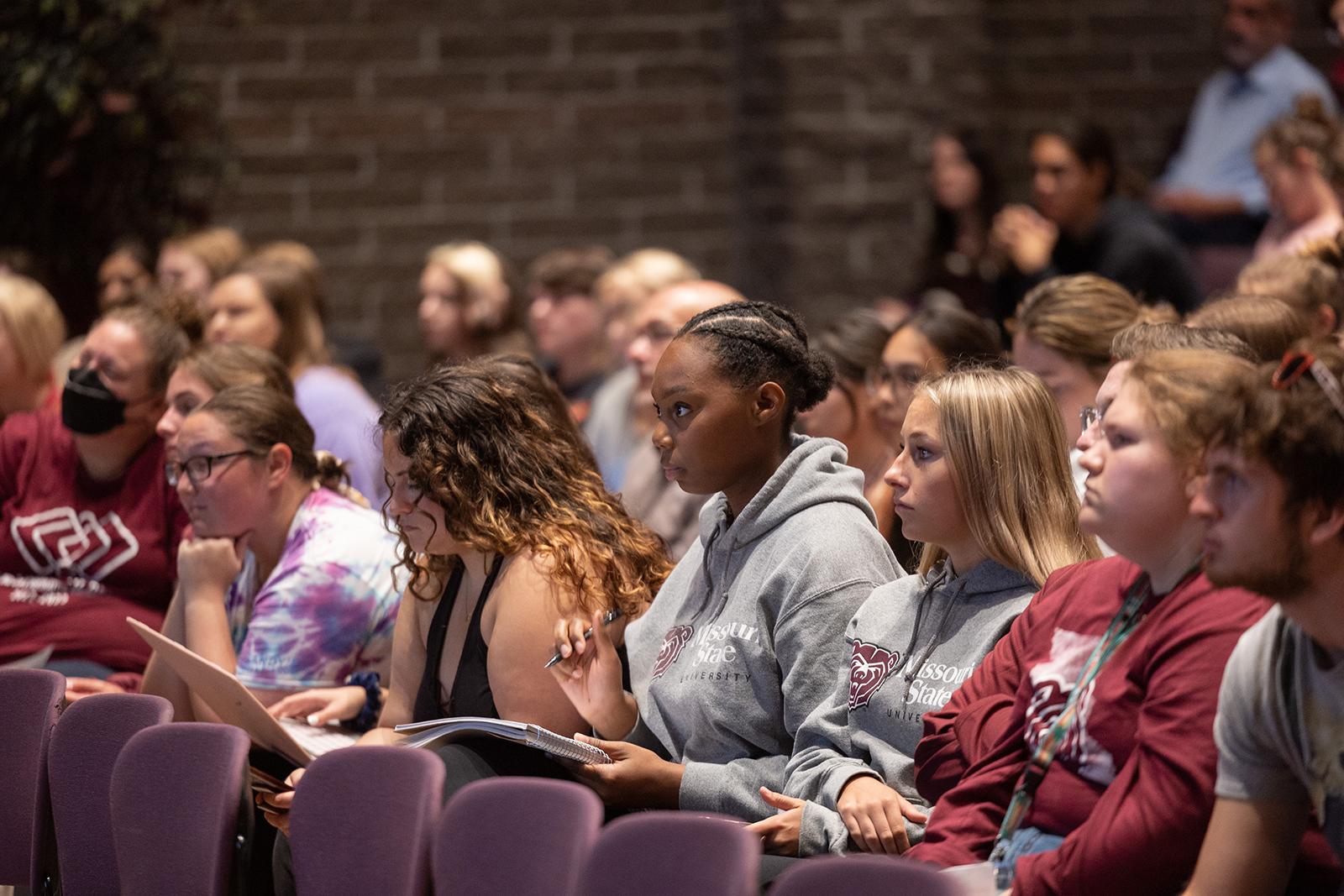The 20th annual Public Affairs Conference is September 26–28 with a mix of free, in-person speakers and live virtual panel sessions. This year’s Public Affairs Fellow and Conference Chair, Dr. Shannon Wooden, professor of English, chatted with Provost Dr. John Jasinski about this year’s conference theme and the role of the Public Affairs Mission at Missouri State.
Q&A
John Jasinski: How do you see the role of the Public Affairs Mission at Missouri State? And how does this relate to the Public Affairs Conference?

Shannon Wooden: In some ways, Public Affairs is at the core of Missouri State’s identity, and in other ways it’s our best kept secret. The fear is that people might see it as an add-on to rigorous academics, the “real work” of the university. Our university has agreed that the education you receive at Missouri State should be targeted toward the three pillars: Ethical Leadership, Cultural Competence and Community Engagement. Basically, whatever you’re studying, we want you to develop knowledge that includes literacy across cultural factors, critical analysis of ethical challenges and a clear sense of how your work affects the community. So it’s not an add-on to your education; it’s the shape of your education.
The conference is an opportunity to showcase this — it’s lightning in a bottle, so to speak. In nearly two dozen events across two days, 40+ speakers who do all kinds of work in the world will show how they contribute ethically to their communities with cultural perspective and respect. And we put them together in interdisciplinary conversations, so that this work reveals its real-world dimensions — not only are the challenges facing the world complex, but educated people approach them more successfully in collaborations.
JJ: What is this year’s focus and theme?
SW: This year’s theme is “Navigating the Now: Tradition, Innovation and Wisdom in a World of Change.” We kicked around ideas of character that seem especially necessary as we emerge from the pandemic. “Grit,” “resilience” and other terms get bandied around to describe how successful people make it through hard times. But the uncomfortable truth we kept returning to is that more of these characteristics are needed all the time. Our world is changing so fast — as Mark Twain said, the pace really started picking up when Queen Victoria took the throne, and you could mark the invention of the internet as another dramatic boost. But in the last 10 years or so, we’ve seen a real culture-wide destabilization of what knowledge even is. Of course, there’s always been skepticism, discrimination and distrust — those things aren’t new. But loud, mainstream attacks on how knowledge is created, technologies that call traditional sources into question, chaotic pushing against how power is historically distributed — these things have become increasingly stressful on society. I don’t mean that all change is bad — many innovations and challenges to the past are good — but it’s hard to live inside a maelstrom of change.
With the “Navigating the Now” theme, we encouraged committee members to come up with specific, current challenges in their fields, and we designed panels that can discuss some of these stressors. That’s how we came up with panel sessions like “AI and the Balance of Originality in and out of the Classroom,” “Navigating the Space from Farm to Table: Reconsidering America’s Food Culture,” “Ways through the Mazes of Modern Medical Ethics,” “Human Expression, Empathy and the Social Experience” and so many other fascinating topics.
Each college has at least two panels that were written with their committee representatives’ contributions, with them particularly in mind. But when we say “interdisciplinary,” we mean it. This is our 20th conference, so we really went all out! Theatre and psychology students alike should definitely hear Kasey Harlin, who works with performing arts in a mental health setting. Communication, education and agriculture people should hear Sheril Kirshenbaum talk about scientific literacy in the food security panel. Business and sustainability students should hear Isaias Hernandez introduce the online brand he built around his joint commitments to diversity and environmentalism. The Director of the Missouri Department of Agriculture will be there; so will the Director of Office of Indian Education at the U. S. Department of Education. The virtual plenary speaker, Diego Senior, will appeal to students from journalism, writing, psychology, computer science information technology, marketing and more. Knowledge is boundless.
“Whatever you’re studying, we want you to develop knowledge that includes literacy across cultural factors, critical analysis of ethical challenges and a clear sense of how your work affects the community.”
—Dr. Shannon Wooden
JJ: How can faculty, staff and students get involved?
SW: Attend! All the regular sessions and one of the plenaries are virtual, so it’s really easy to log on and listen. Three plenary events are in person, on campus. Encourage your students, colleagues and friends to come with you. With a little digging (and I’ve done some of that digging for the colleges and sent guides, of sorts, to deans and department heads), you can really plan your experience for your maximum benefit. But if you just log on when you have time, you’re bound to experience something very interesting.
JJ: What are you, personally, most excited about?
SW: The closing plenary! I’ve been trying for — literally — years to bring ILL-ABILITIES™ to Missouri State. Their performance and presentation on Thursday night are not to be missed! They are astonishing — each member of the crew has developed a powerful, exciting and unique dance style around their own ability and disability, and they’ve come together from all over the world to dance, travel and speak together. Not only is it going to be a tremendous amount of fun, but what a lesson to each of us about contributing in big ways from wherever we are and whatever we love.

